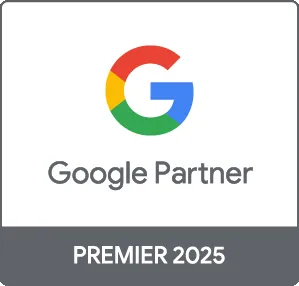Optimizing your Google Ads campaigns is crucial for maximizing your return on investment (ROI). Whether you're a small business or a large enterprise in Johannesburg, effective campaign management can drive targeted traffic and increase conversions. In this comprehensive guide, we’ll cover essential strategies for optimizing your Google Ads campaigns to ensure your advertising budget is well spent.
Understanding Google Ads Optimization
Google Ads optimization involves continuously refining your campaigns to improve their performance. It includes tweaking ad copy, selecting the right keywords, adjusting bid strategies, and analyzing performance metrics. The ultimate goal is to achieve a higher click-through rate (CTR), enhance conversion rates, and lower cost-per-click (CPC).
1. Keyword Research and Selection
Choosing the right keywords is the cornerstone of a successful Google Ads campaign. Focus on:
- Long-Tail Keywords: Use specific, longer phrases that target niche audiences for lower competition.
- Negative Keywords: Regularly review and add negative keywords to filter out irrelevant traffic.
- Competitor Keywords: Analyze what keywords competitors are using effectively and consider incorporating similar terms.
2. Crafting Compelling Ad Copy
Your ad copy should capture attention and promote engagement. Consider the following tips:
- Clear Call-to-Action: Always include a strong CTA that tells users what you want them to do next, whether it’s “Get a Quote” or “Shop Now”.
- Highlight Offers and Benefits: Use compelling language to showcase unique selling points and promotions.
- A/B Testing: Experiment with different ad copies and headlines to see which performs best.
3. Bidding Strategies and Budget Management
Choosing the right bidding strategy can greatly impact your campaign’s performance:
- Enhanced CPC: This strategy automatically adjusts your bids to maximize conversions while maintaining your target ROI.
- Target CPA: Set a target cost-per-acquisition that guides your bidding for conversions.
- Daily Budget Adjustments: Regularly assess the performance and adjust your budgets to allocate more funds to higher-performing campaigns.
4. Analyzing and Tracking Performance
Performance tracking is essential for ongoing optimization:
- Google Analytics Integration: Link your Google Ads account with Google Analytics to gain deeper insights into user behavior.
- Conversion Tracking: Set up conversion tracking to monitor how your ads influence customer actions.
- Regular Reporting: Generate weekly or monthly reports to assess campaign performance with action steps for improvement.
5. Optimize for Mobile Users
With an increasing number of users accessing ads via mobile devices, ensure your campaigns are mobile-friendly:
- Responsive Ads: Use responsive search ads that automatically adjust to fit different devices.
- Mobile-Specific Landing Pages: Create landing pages optimized for mobile users to enhance user experience.
Conclusion
Optimizing your Google Ads campaigns in Johannesburg can significantly improve your ad spend efficiency and drive more qualified leads to your business. By focusing on keyword selection, compelling ad copy, smart bidding strategies, and performance tracking, you can achieve outstanding results. At Prebo Digital, we specialize in Google Ads campaign optimization and can help you achieve your advertising goals. Contact us today for a tailored strategy that works for your business!





